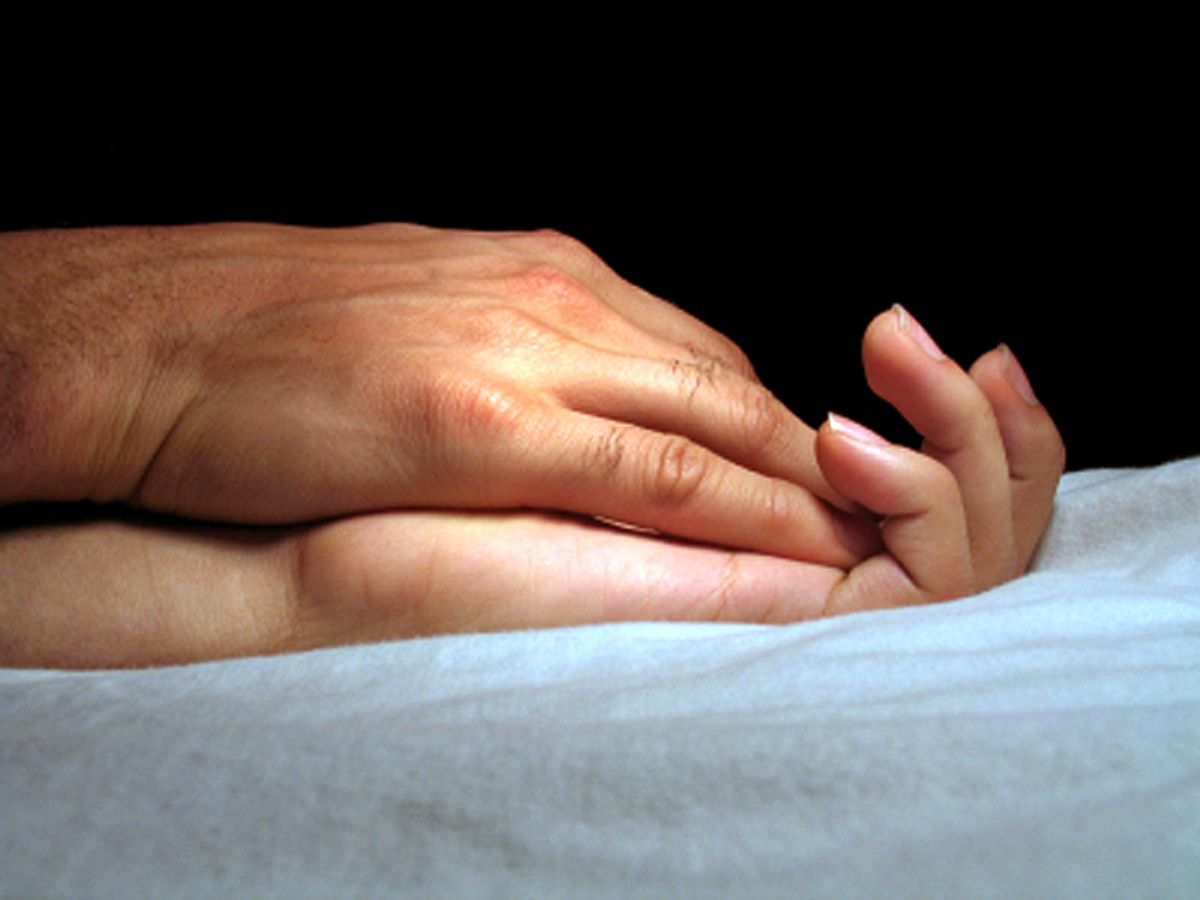A British man was acquitted of raping a 16-year-old this week after mounting a "sexsomnia" defense. Sure, it sounds like a bad joke, but so-called "sleep sex," when someone engages in unconscious, involuntary sexual behavior during slumber, is recognized as a rare but legitimate parasomnia.
However, a leading sleep forensics expert tells Salon that he is highly dubious of the defense in this particular instance, and worries that the case misrepresents a serious condition.
With the caveat that he doesn't know all of the particulars in this case, Michel Cramer Bornemann, co-director of the Minnesota Regional Sleep Disorders Center and lead investigator at Sleep Forensics Associates, says that the broad strokes do not "pass the smell test" for sexsomnia. It was alleged in court that a teenage girl who was staying at Stephen Davies' house became ill and decided to sleep in the 43-year-old's bed since his room was cooler. The accuser claimed that she woke up to find Davies touching her and, as she cried out of terror, he turned her on her side and had sex with her. Afterward, she said he went downstairs to put a kettle on the stove and then returned to the bedroom to sexually assault her again. The next day, Davies texted the girl to ask if anything had happened, and he told police he couldn't remember having sex with her. During the trial, Davies' ex-wife and another former sex partner testified that they had experienced his sexual overtures during sleep.
"The fact that he went downstairs and engaged in behavior that was quite complex and then engaged in sexual intercourse implies higher cortical functioning that is more consistent with a state of consciousness that is not sleep," Cramer Bornemann said. "It implies a goal directed behavior, which completely submarines the defense." More typical "sleep sex" behaviors include inappropriate "vocalizations," "touch" and "masturbation" -- despite the misleading name, sexual intercourse is actually very rare.
Michael Mangan, a psychologist and founder of the website sleepsex.org, disagrees. "If you are familiar at all with sleepwalking you know people do all sorts of crazy stuff in their sleep," he says. "When it involves sex, that's when it bumps up against the credulity of the listener [who thinks,] 'How could somebody engage in that sort of behavior not once but twice, and all the while have tea in between?'" He is quick to say that he doesn't believe that Cramer Bornemann is necessarily incorrect, noting that "he definitely knows his stuff," it's just that he believes the facts of the case, at least on the surface, are not inconsistent with, or even unusual in, sexsomnia.
This disagreement reveals just how complicated and controversial the condition is, even among its most respected spokesmen. In a paper published in the American Medical Association Journal of Ethics, Cramer Bornemann explained the difficulty in providing accurate expert testimony in such cases:
Because a diagnostic [sleep study] can neither refute nor support a suspected diagnosis, and given the transitory nature of brain states, the presence or absence of a condition can never be determined with absolute certainty. Ultimately, the best the medical expert can do is to provide an opinion that the condition is either "highly unlikely," "likely," or "highly likely," or that there are "insufficient data to assess likelihood."
Cramer Bornemann -- who has consulted for both the defense and prosecution in over 200 sleep-related criminal cases, 40 percent of which have involved sexual allegations -- says his opinion is that it is "very unlikely" in this case. "There is great potential for misuse purely to serve a defense," he said. "These are legitimate clinical conditions, but as such these can be inappropriately used in forensics or legal situations."
What both experts can agree on is that anyone with a history of sexsomnia, as Davies allegedly had, needs to be held to some degree of accountability. Managan says, "If they are at all predisposed to it, they better not put themselves in positions where they could put themselves or others at risk."

Shares